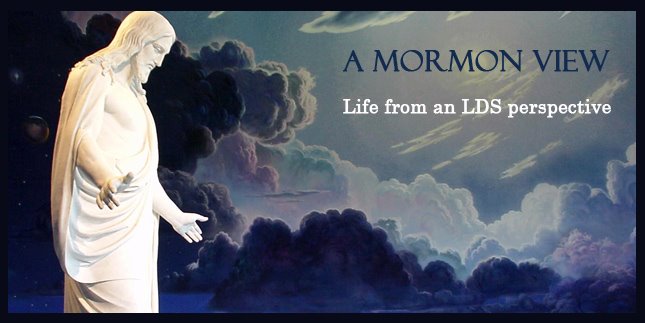When Gay Rights and Religious Liberties Clash
NPR.org, June 13, 2008 · In recent years, some states have passed laws giving residents the right to same-sex unions in various forms. Gay couples may marry in Massachusetts and California. There are civil unions and domestic partnerships in Vermont, New Jersey, Connecticut, New Hampshire and Oregon. Other states give more limited rights.
Armed with those legal protections, same-sex couples are beginning to challenge policies of religious organizations that exclude them, claiming that a religious group's view that homosexual marriage is a sin cannot be used to violate their right to equal treatment. Now parochial schools, "parachurch" organizations such as Catholic Charities and businesses that refuse to serve gay couples are being sued — and so far, the religious groups are losing. Here are a few cases:
Adoption services: Catholic Charities in Massachusetts refused to place children with same-sex couples as required by Massachusetts law. After a legislative struggle — during which the Senate president said he could not support a bill "condoning discrimination" — Catholic Charities pulled out of the adoption business in 2006.
Housing: In New York City, Yeshiva University's Albert Einstein College of Medicine, a school under Orthodox Jewish auspices, banned same-sex couples from its married dormitory. New York does not recognize same-sex marriage, but in 2001, the state's highest court ruled Yeshiva violated New York City's ban on sexual orientation discrimination. Yeshiva now allows all couples in the dorm.
Parochial schools: California Lutheran High School, a Protestant school in Wildomar, holds that homosexuality is a sin. After the school suspended two girls who were allegedly in a lesbian relationship, the girls' parents sued, saying the school was violating the state's civil rights act protecting gay men and lesbians from discrimination. The case is before a state judge.
Medical services: A Christian gynecologist at North Coast Women's Care Medical Group in Vista, Calif., refused to give his patient in vitro fertilization treatment because she is in a lesbian relationship, and he claimed that doing so would violate his religious beliefs. (The doctor referred the patient to his partner, who agreed to do the treatment.) The woman sued under the state's civil rights act. The California Supreme Court heard oral arguments in May 2008, and legal experts believe that the woman's right to medical treatment will trump the doctor's religious beliefs. One justice suggested that the doctors take up a different line of business.
Psychological services: A mental health counselor at North Mississippi Health Services refused therapy for a woman who wanted help in improving her lesbian relationship. The counselor said doing so would violate her religious beliefs. The counselor was fired. In March 2001, the United States Court of Appeals for the Fifth Circuit sided with the employer, ruling that the employee's religious beliefs could not be accommodated without causing undue hardship to the company.
Civil servants: A clerk in Vermont refused to perform a civil union ceremony after the state legalized them. In 2001, in a decision that side-stepped the religious liberties issue, the Vermont Supreme Court ruled that he did not need to perform the ceremony because there were other civil servants who would. However, the court did indicate that religious beliefs do not allow employees to discriminate against same-sex couples.
Adoption services: A same-sex couple in California applied to Adoption Profiles, an Internet service in Arizona that matches adoptive parents with newborns. The couple's application was denied based on the religious beliefs of the company's owners. The couple sued in federal district court in San Francisco. The two sides settled after the adoption company said it will no longer do business in California.
Wedding services: A same sex couple in Albuquerque asked a photographer, Elaine Huguenin, to shoot their commitment ceremony. The photographer declined, saying her Christian beliefs prevented her from sanctioning same-sex unions. The couple sued, and the New Mexico Human Rights Commission found the photographer guilty of discrimination. It ordered her to pay the lesbian couple's legal fees ($6,600). The photographer is appealing.
Wedding facilities: Ocean Grove Camp Meeting Association of New Jersey, a Methodist organization, refused to rent its boardwalk pavilion to a lesbian couple for their civil union ceremony. The couple filed a complaint with the New Jersey Division on Civil Rights. The division ruled that the boardwalk property was open for public use, therefore the Methodist group could not discriminate against gay couples using it. In the interim, the state's Department of Environmental Protection revoked a portion of the association's tax benefits. The case is ongoing.
Youth groups: The city of Berkeley, Calif., requested that the Sea Scouts (affiliated with the Boy Scouts) formally agree to not discriminate against gay men in exchange for free use of berths in the city's marina. The Sea Scouts sued, claiming this violated their beliefs and First Amendment right to the freedom to associate with other like-minded people. In 2006, the California Supreme Court ruled against the youth group. In San Diego, the Boy Scouts lost access to the city-owned aquatic center for the same reason. While these cases do not directly involve same-sex unions, they presage future conflicts about whether religiously oriented or parachurch organizations may prohibit, for example, gay couples from teaching at summer camp. In June 2008, the federal Ninth Circuit Court of Appeals asked the California Supreme Court to review the Boy Scouts' leases. Meanwhile, the mayor's office in Philadelphia revoked the Boy Scouts' $1-a-year lease for a city building.


